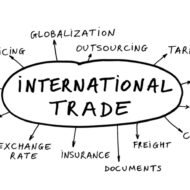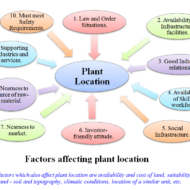Posted by Managementguru in Business Management, International Business, Marketing, Principles of Management
on Mar 11th, 2014 | 0 comments

Key Strategies of Global Marketing Globalization means many things to many people. For some it is a new paradigm – a set of fresh beliefs, working methods and economic, political and socio-cultural realities in which the previous assumptions are no longer valid. For developing countries, it means integration with the world economy. It can be better understood if we look it at this perspective- “the world integrated into one huge market”. It calls for the removal of all trade barriers among countries and a perfect competitive market prevails and the stress can lead to many positive and possible outcomes in terms of QualityQuantityUniquenessForeign exchangeBenefits to the host countryIncreased productivity leading toEconomic growth Well, it does not end there. An MNC (multi national company), by operating in more than one country gains r and d, production, marketing and financial advantages in terms ofcost and labor that other competitors may not enjoy. The global company views the world as one market, minimize the importance of national boundaries, sources, and raise capital and markets wherever it can do the job best. Why do companies go global? One reason could be the rapid shrinking of time and distance across the globe thanks to faster communication, speedier transportation, growing financial flows and rapid technological changes. It is being realized that the domestic markets are no longer adequate and rich. Japanese have flooded the U. S. Market with automobiles and electronic goods because the home market was not big enough to absorb whatever was produced. Companies at the first stage of globalization have only passive dealings with foreign individuals and organizations. By the second stage, companies deal directly with their overseas counterparts, though they might continue to use third parties also. The company might decide to set up an import or export department. Next comes the shedding of domestic capacity and floating an international organization and have a direct hand in exporting, importing, and perhaps producing goods and services abroad. Seldom companies reach this stage, even if they do, they recede later. The company can have a strong foothold in the countries it is organizing its activity only by way of * Superior product quality* Demand* Customer preference for that particular product range that the company offer* A dynamic CEO projecting and boosting company’s image,* Brand image* Availability of skilled labor* Licenses* Access to necessary infrastructure* Feasible financial structure* Viability in the long run* Marketing mix Chennai in India has become a hub for so many corporate as well as global companies since the business climate is very favorable and enterprising. Some of the strategies in globalization would be * Deciding whether to go global* Deciding which markets to enter* Deciding how to enter the market* Learning to handle differences* Adjusting the managing process* Deciding organization structure* Selecting a managerial approach. Developing countries like India have adopted new economic policies that are expected to encourage the international companies setting their foot in India, by which it compels many Indian companies to pursue internationalization vigorously. True globalization marks the beginning of a new economic era of growth and...

Posted by Managementguru in Economics, Financial Management, International Business, Marketing, Project Management
on Mar 11th, 2014 | 0 comments

What is Trade? Trade is the exchange of commodity and services. International trade represents business transactions taking place at the global level, and it is fundamentally different from domestic trade. Trade at international level demands huge investments, network of franchisees and proficient people to run the show. Many corporate giants are trying to capture Asian markets, especially Indian market, which has become the industrial hub for such economic activities. Economic liberalization has been the focus of many developing countries for the past two decades and this has allowed multinational companies with huge investment potential to enrich the weaker economies. What is International Trade? International trade tries to generate more foreign exchange, which is always good for the economy. Say, if a country has rich resources of petroleum, naturally it will try to sell the surplus to countries not endowed with such natural resources. That is why Middle East nations are prosperous and economically independent. The diversity in productive possibilities in different countries is due to the presence of limited natural resources. When a country gets a head start in a particular product, it can become the high volume, low cost producer. The economies of scale give it a significant advantage over other countries, which find it cheaper to buy from the leading producers than to manufacture the product themselves. Barriers for Effective Trade Every nation must try to specialize in the production and export of those commodities, which are available in plenty and must import such products in the production of which they have a resource deficiency. It should be remembered that there are severe man made barriers in international trade such as, export duties, quotas, exchange restrictions etc.,that hinder the free movement of products. International Trade and Finance Nevertheless, it is not also possible for a country to produce domestically every kind of product. In spite of all these restraining factors, global trade is thriving, thanks to the advanced technological aspects introduced in communication and faster means of transportation. Distance is no more a constraint and the world has become one small global village. Foreign Exchange Issues All domestic transactions, say in a country like India take place in rupees, which is the legal tender in the country. However, in its trade with other countries like USA, Germany, Japan, France and Britain, the payments have to be made in terms of dollars, marks, yens, francs and pound sterling respectively. The mechanism through which payments are effected between two countries having different currency systems is called foreign exchange. It may be also defined as the exchange of money or credit in one country for money or credit in another. Foreign exchange rates can affect relative prices and net exports. A rise in the a nation’s foreign exchange will depress that nation’s net exports and output, while a fall in the foreign exchange rate will increase net exports and output. Because of the significant impact of exchange rates on national economies, countries have entered into agreements on international monetary...

Posted by Managementguru in Entrepreneurship, Human Resource
on Mar 1st, 2014 | 0 comments

The Spirit of Entrepreneurship In the modern competitive business environment, not all graduates of various disciplines like engineering, management and the like can aspire for white collar jobs. The recent global recession has made the prospective job seekers think twice about working in foreign countries. Self employment has become the order of the day. Being your own boss is truly inspiring and motivating at least in theory. When it comes to reality, we need to know exactly what does it take to become an entrepreneur by starting a small business or taking over the business run by your predecessors. Why we need more entrepreneurs? Various avenues have been opened up thanks to communication and transportation that has brought the world under a single huge umbrella. Also small industries face minimum risk as the investments are marginal and they have the liberty to try a number of innovations like combination of new products new materials new methods of production new markets new sources of materials and even New forms of organization. Being a competitor in an open market, minimum profit and constant revenue inflow are assured and also they can enjoy the benefit of minimum fluctuation in the product price as it is determined by the market and not by individuals. Want to know 10 Daily Habits of Most Successful Entrepreneurs? Scope of entrepreneurial activity: Either you can be a subsidiary to large scale business or you can engage yourself in supply of repair services with small engineering establishments or you can go for small cottage industry businesses like cutlery, furniture, jewelry, fruit canning, soap making etc., Being fairly labor intensive, you can provide economic solution by creating employment and income opportunities in urban and rural areas with relatively low cost of capital investment. Business process outsourcing has been in recent times the magic happening in countries like India, China etc., where the foreign investors take advantage of cheap labor, time and efficient communication skills of the population. Knowledge process outsourcing has also become popular and it stands as a testimony of the rising power of Asian countries over the west. “Small is beautiful” and you can make it big in the small scale business industry if you are Innovative and productive Provide personalized services to the customers Identify and target the right markets This ensures “WINNING THE GAME OF BUSINESS“. An economy grows only when it has large number of enterprises accelerating the economic growth prospects of that particular country. The export policies of all nations have become more flexible owing to globalization, liberalization and...

Posted by Managementguru in Operations Management, Project Management
on Feb 24th, 2014 | 0 comments

Locational Attributes for a Plant Layout The location of an industrial plant plays a vital role in determining its success. Management should weigh the pros and cons of the location in terms of cost and revenue as each location might influence these variables in different proportions. Let us try to understand the need for a new facility location. Entrepreneurs interested in starting a new business venture or a small-scale enterprise has to look out for appropriate location for plant installation. Manufacturers who plan to expand their product range needs additional plant capacity Multinational corporations trying to establish their markets through subsidiaries Obsolete plants have to be shut down and new location has to be identified. The location attributes described below are fundamental in the decision to locate an industry. Although for particular firms some are more important than others, a significant shortfall in an area’s ability to provide even one of these may greatly reduce the attractiveness of that site. Labor The management will be interested in such locations where there is adequate supply of labor. Some operations need skilled labor and some unskilled. The cost of labor is an important factor to be considered as it influences labor productivity. However, low labor cost is not necessarily an advantage, if the workers are poorly educated and trained. The management has to be mentally prepared to pay for skilled labor who have the training and experience needed for the planned operation. Energy resources Electricity and water are major energy resources needed for production activities. For example, a textile mill needs to have round the clock power supply, for continuous production and a dyeing plant is in need of copious water supply. These industries will be on the look out for a location that has abundant energy resources available at low cost. Transportation The industry has to be located near the market so that the produce can quickly reach the market making the transportation costs minimum. Domestic trade heavily relies upon road transport as there are numerous service providers and there is well-developed infrastructure connecting even the remotest of locations. International trade takes place through either airways or waterways. In places like Kerala, inland waterways help in transporting merchandise within the domains of the territory. Raw materials availability Many businesses depend on materials of various types such as unprocessed raw materials for use in manufacturing and finished goods for inventory, in wholesale and retail establishments. The availability and cost, including transportation costs of these materials are critical location factors. Other Factors Other factors that influence location decisions are government regulations, climate and environmental quality of an area, soil texture, and attitudes of state and local governments’ etc. The economic viability of a project is undoubtedly enhanced by appropriate location. The location should also conform to environmental protection laws to maintain the ecobalance of that particular habitat. Organizations are expected to dispose of with the effluents in a systematic manner and this has to be kept in mind while choosing a location. The GEMBA Walk: A gemba (and sometimes genba) walk is the term used to describe personal observation of work – where the work is happening. The original Japanese term comes from gembutsu, which means “real thing.” It also sometimes refers to the “real...








